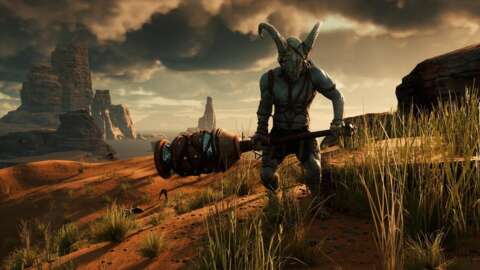Streaming is my job. Whether it be analyzing the stories of streaming TV and movies, what they mean, their impact and where they could be going, or talking about the business-y inside baseball of it all, my career is currently wholly dependent on the existence of streaming as a medium. It is my livelihood, sometimes my obsession and, despite the threat it has posed to theatrical exhibition — something else that I love with every bit of my cranky little heart — I still believe in its promises of accessibility and its potential as a new frontier for original and diverse stories.
You know what else I believe in? That writers and actors deserve fair compensation for their work and time that they put in to create the art that we’ve loved over recent years. Whether it be shows like WandaVision, Loki, Andor, Succession, or The Boys, or films like CODA, The Mitchells vs. the Machines, One Night in Miami or The Sound of Metal, they are all created by the very people calling for fair wages and reasonable treatment. And they are not receiving it.
When streaming was first introduced, these unions were asked to take lesser deals on good faith because no one was sure what would happen with this weird new media. But now it’s 2023, and the executives in charge are taking home millions while many writers and actors are being paid a pittance in residuals while also facing the looming threat of AI.
The Writers Guild of America (WGA) has been striking for 73 days. As of yesterday, the Screen Actors Guild — American Federation of Television and Radio Artists (SAG-AFTRA) joined the fight with guild President Fran Drescher fired up and clearly tired of being ignored.
“You cannot change the business model as much as it [streaming] has changed and not expect the contract to change too,” said Drescher. “We’re not going to keep doing incremental changes on a contract that no longer honors what is happening right now with this business model that was foisted upon us. What are we doing, moving around furniture on the Titanic? It’s crazy.”
I may not be able to do my job without streaming, but right now streaming isn’t really living up to those promises I mentioned, and I’d like to see that change. Aside from the WGA and SAG-AFTRA, the entire industry can benefit from the changes they’re fighting for — me included. And you the audience, too.
Or, as Andor showrunner Tony Gilroy put more eloquently in an interview with IndieWire, “I hope that the creative community can do what the business community in Hollywood seems to be failing to do, which is to try to preserve something amazing that’s been one of the great industries in American culture.”
Transparency Matters
Did you know that we don’t have an objective look at streaming viewership numbers? We have what they tell us, sure, but Netflix’s fudging of its own data has become so infamous over the years that it’s basically a meme now, and we have no reason to believe that the other major players are behaving any differently. It’s such an issue that it is a driving factor behind both of the strikes, with each guild insisting that transparency and third-party assessments of that data are critical to being able to negotiate a fair residuals model.
You know what I and entertainment editors around the world need to better be able to do our jobs? And which then will be better for the audience, who are trying to choose between the many different shows and movies that are available to stream? Transparent dang data. We have it for network television. We have it for film. But streaming remains the outlier. Why? Well, streaming services are in a bit of a tight spot in that they want investors to think their numbers are very high because it means they’ll keep giving them money, but they don’t want a universally agreed upon metric to measure those numbers in part because they might have to share some of that money with the people actually making the films and series that keep them going.
Gilroy actually went long on this fact in that aforementioned interview — one that was meant to be in celebration of his Emmy nominations. When asked about the rave reviews but lower audience of his show, the showrunner pointed out that he really has no idea what his viewership is or was.
“One of the central issues of this entire labor experience is that I don’t have any idea what the audience is,” Gilroy said. “We don’t know what that is, and I think that the obscurity of data doesn’t help anyone.”
But it’s one of Gilroy’s final sentiments that really drives home the urgency of the matter. “I think it’s distorted and warped and is close to ruining this amazing industry.”
Show Them the Money
When Abbott Elementary (which just scored eight Emmy nominations) aired its Season 2 finale, writer Brittani Nichols took to twitter to share this:
Good thing I, as the writer of this episode, do not benefit from this success because of the current streaming residuals model pic.twitter.com/U5u93ynjKa
— Brittani Nichols *Double Strike Version* (@BisHilarious) May 4, 2023
Now, I had a cursory understanding of how little residuals writers saw from streaming, but I didn’t have a full grasp on what it looked like for a network show that played next day on a given service (Hulu, in the case of Abbott Elementary), so I reached out to Nichols.
“The next day streaming model has made it so there's no point in re-airing our work,” Nichols told me. “Their goal is to get people to sign up for streamers so they point people there to watch the show instead of showing it again on TV. When they replay an episode on TV, the fee [we would get] is like $13,000. On streaming, we get paid a flat fee for unlimited plays. That flat fee is 5.5% of the re-air amount.”
Nichols went on to confirm that the largest new media (streaming) residual check she’s received was around $700. That’s not even a month’s rent in rural cities anymore, let alone Los Angeles. And she’s not alone.
On the day of SAG-AFTRA’s strike announcement, She-Hulk: Attorney at Law writer Cody Zigler tweeted this:
The residual check from my episode of She-Hulk: Attorney at Law was $396. https://t.co/TcS6WO1MjL
— Cody Ziglar (updates mostly) (@yayforzig) July 13, 2023
Everyone likes to talk about “Marvel money” but, based on this ant-sized residual for a series tied to the MCU, it seems like wherever that money is going, it sure isn’t to the creators. (We know where the money is going, we’ll get there in a tick.)
This isn’t an isolated issue, either. This is the reality that all television and film writers face within their current contract when it comes to their stories playing on a streaming platform. Charles Slocum, the assistant associate director of the Writers Guild of America West (WGAW), told Deadline earlier this year that in streaming “the companies have not agreed to pay residuals at the same level as broadcast, or the same reward-for-success as they have traditionally paid in broadcast. If you write for a streamer, you get two residual payments – one for domestic streaming and one for foreign streaming. It’s a set amount of money. If [the show is] a big hit, you do not get paid more residuals in streaming, whereas in the broadcast model, you do because of its success. That’s the sense that residuals were slashed – they have not agreed to a success factor when a program is made for streaming.”
It’s easy to fall back on the “they’re a bunch of rich people in Hollywood anyway” mentality, but that is plainly not the case. Most working actors and writers are regular folks trying to pay their bills like the rest of us, with only a small percentage of them falling under the “famous celebrity” banner. And the bottom line is, the harder it is for talented people to work in the industry, the more those same people will drift away into more stable forms of employment, which ultimately means the movies and shows that you are watching will suffer for it.
Bad Faith Arguments and Flimsy Goalposts
“There’s a level of expectation that they have, that is just not realistic,” Disney CEO Bob Iger told Variety about the strike(s). “And they are adding to the set of the challenges that this business is already facing that is, quite frankly, very disruptive.”
Oh Bobby. Bobby no.
All magic comes with a price, but it’s wild that the creators and the fans (via higher subscription fees and ticket prices) are the ones who should have to pay it while executives take home exorbitant paydays. Last year, The Hollywood Reporter did a full report on what those paydays look like, with Warner Bros. Discovery’s David Zaslav taking home $246.6 million (that is $675,000 per day), while Iger was able to snag a cool $45.5 million. Nine out of the 12 executives profiled saw an increase in pay from 2020, despite streaming services claiming record losses and many writers being paid at guild minimums and actors receiving pittances for residuals.
Zaslav can buy an entire house per day if it suits his fancy, while Iger (at a much smaller $70K or so a day) can skip off with a brand new Mercedes every 24 hours. But sure, Bob. Please tell me more about how disrupted you feel. Because none of the executives trying to ice out writers and actors are going home with lesser paydays despite “record losses.”
In the wake of the strikes, the studio executives’ collective messaging has been some version of asking striking writers and actors to think of the support staff they’re hurting. But if that’s the case, then why is social media filled with production coordinators and PAs telling stories of how the showrunners, writers, and casts came together to buy them lunches and ensure some kind of holiday bonus (because they have an unpaid two weeks off otherwise) when studios stopped doing so? And what about all the talk from those support staff workers of constantly declining pay?
(If you want more examples, just give “support staff” a peek on ol’ Twitter.)
The Artificial Intelligence in the Room
Artificial intelligence cannot create art. Period. In one case use, an algorithm scrubs through countless existing art pieces and Frankensteins them together to create a “new” image. AI can be used as a tool to help artists, but the idea that AI can create is obtuse and its top industry leaders agree that it needs to be regulated. Meanwhile, WGA wants to harness the tool to do exactly what it’s meant to do: make their jobs easier.
Studio executives and the AMPTP, however, have made the AI issue quite dire for WGA and, by proxy, writers of all kinds. The guild’s specific ask was as follows: Regulate use of artificial intelligence so it can’t write or rewrite literary material, can’t be used as source material, and guild material can’t be used to train AI. The AMPTP refused to come to the table at all on this specific line item, and instead offered an “annual meeting to discuss advancements in the technology.”
SAG-AFTRA members are met with something equally alarming, with studios seeking to use their likeness, sometimes in perpetuity. After their deal deadline expired, the AMPTP insisted that SAG-AFTRA was offered a “groundbreaking deal.” Here’s what SAG-AFTRA National Executive Director Duncan Crabtree-Ireland had to say about it in their strike press conference:
"In that 'groundbreaking' AI proposal, they proposed that our background performers should be able to be scanned, get paid for one day's pay, and their companies should own that scan, their image, their likeness, and for people to use it for the rest of eternity in any project they want with no consent and no compensation," he said. "So if you think that's a groundbreaking proposal, I suggest you think again."
That one-day’s pay that would screw them out of their likeness in perpetuity? It’s like $150. To make matters even worse, the work of including all of these digitally scanned people into the media would fall on the shoulders of VFX teams who — as you may recall from recent worker backlash against Marvel — do not have a union.
If you think a lot of our current art is derivative (a problem that is actually emblematic of shrinking writers rooms with fewer resources and a fierce studio devotion to IP) what do you think it will look like for your favorite TV show or movie series when it’s run by a tool whose only trick is to regurgitate information it already has? The “intelligence” part of artificial intelligence has and always will be a misnomer. It has information, but it will never have context.
As for its ability to recreate human performance? Its ability to simulate the presence of an actor? C’mon. We all know better than that.
It’s Always Been for the Fans
During yesterday’s press conference, one of the closing questions wondered how SAG-AFTRA would respond to fans that don’t care about their strike and just want their entertainment. To that, Drescher took rightful umbrage.
"What makes you think they're not interested in what's happening here?" she asked. "I think that they have an allegiance to all of us because we bring joy to their lives, and during COVID, they turned to us for everything. So I don't think that your assumption that they don't really care about anything but being entertained over the summer is the bottom line...”
Across both strikes, I’ve seen something really remarkable happening. People are paying attention and engaging in a way that they never had the opportunity to back in the 2007 writers’ strike (and certainly not in the previous SAG-AFTRA strike back in 1986). Social media has amplified the stories of mistreatment that otherwise would have been whispered at a party and never repeated. The people who love the art that these writers and actors create have a peek into their fight. And Drescher’s right. They do care.
How Will Movies and TV Change if the Writers and Actors Get What They Want?
I’m not that kind of witch, but if I were a betting gal I think a couple key things will happen if both guilds get what they ask for.
Fewer Shows and Movies, Better Quality: If they actually start paying people what they’re worth, I assume we’ll see fewer shows and movies (‘cause we all know those exec paydays ain’t getting any smaller). But, with full writers rooms and fair pay, I’m confident we’ll see a quality increase. The bond that the writers and actors have formed in their solidarity isn’t anything to sneeze at, either. That connection can go a long way when it comes to strengthening collaborations between two of the most integral parts of media. Better collaboration often results in stronger work, and we the fans get to benefit from it!
Groundbreaking Precedents for AI: SAG-AFTRA is one of the most well-known labor unions in the United States (everybody loves a celebrity). Partnering with WGA to draw a line in the sand over the AI threat to workers is a huge deal that I believe can benefit people in the many different industries beyond Hollywood that are facing the same existential danger that the technology presents. Precedents are important, and big wins on national platforms can help the little guys get what they deserve too.
More Voices in Front of and Behind the Camera: Unfair wages are one of the first things to freeze out minority voices. Many people cannot be in the entertainment industry in any capacity unless they have a spouse with a better job or still live with their parents. Making writing and acting viable careers again opens the door for more diverse creators in the way that streaming was supposed to from the start.
There could be more! There could be less. We really don’t know until we see what kind of deals these guilds walk away with. What I do know is that the entertainment industry — streaming in particular — is at a crossroads, and the people who made sure we had art while we were trapped in our homes in quarantine and had continued stories to return to once it was all over need our solidarity.
I can’t speak for anyone else, but they most definitely have mine.
If you’d like to show support, many WGA and SAG-AFTRA members are highlighting the Entertainment Community Fund as a way to best help both those on strike and those impacted by the loss of work. You can donate or even just share out the link to your networks, and you can learn more about the Fund’s mission on their website.
Amelia is the entertainment Streaming Editor here at IGN. She's also a film and television critic who spends too much time talking about dinosaurs, superheroes, and folk horror. You can usually find her with her dog, Rogers. There may be cheeseburgers involved. Follow her across social @ThatWitchMia



